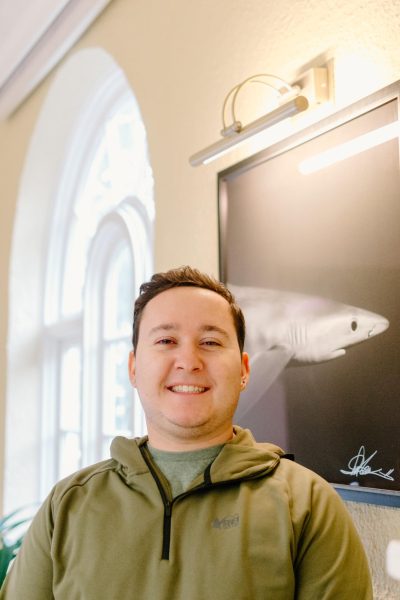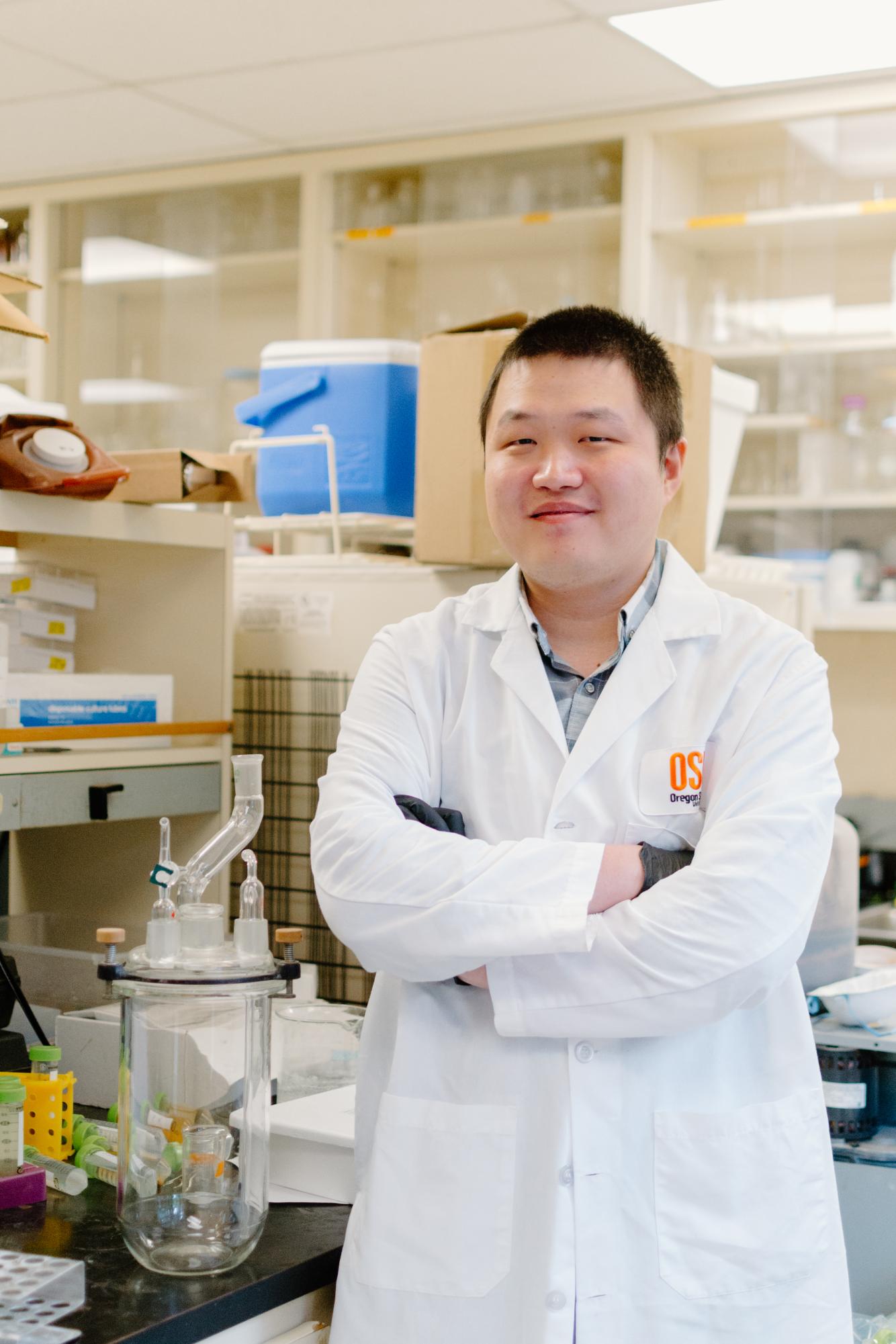Fei Long and Joshua Blockstein, both doctoral students at Oregon State University, have had the sun and sea behind them as they research ways to advance humanity.
OSU’s Sea Grant and Sun Grant backed these two and many other researchers with funding and connections, allowing them to change the world with their findings.
Long, a doctoral student of biological and ecological engineering at OSU, got his undergraduate degree in biology science in China before coming to the United States. He chose this specific major because he was interested in working with animals.
“I love animals,” Long said. “(But) in the end, I just kill(ed) mice everyday.”
Not enjoying this research trajectory, after his undergraduate years Long decided to switch to a different major, landing in chemical engineering. At this point, he went to OSU to get his master’s degree.
After finishing his master’s degree, he realized that pollution was a big problem and switched one last time to biological and ecological engineering, hoping to use his background in both biology and chemistry to help make a difference.
His goal is to find ways to efficiently turn waste into energy.
Through the assistance of funding from the Western Region Sun Grant Center, he was able to work on two research projects that made strides to help optimize our food waste.
The first project was focused on optimizing the amount of medium-chain carboxylic acids produced from food waste, which can then be recycled into energy.
“Some new technology (was) just trying to generate (an) organic stream of more valuable products like MCCA (from food waste),” Long said. “If we can come up with ways to (create) MCCA, the first thing we can (do is) reduce environmental law and deal with environmental pollution. Second, we can get value from the waste.”
The second research project was similar to the first; however, instead of breaking down food waste to create energy, Long and his team are trying to optimize the amount of ethanol obtained from lignocellulosic biomass.
According to a study published in Frontiers in Chemistry, lignocellulosic biomass is a resource from plants that is abundant and renewable. It is currently being researched as an alternative to fossil fuels.
In the future, Long plans to keep working on projects relating to MCCA. Currently, he is working on a project involving the food waste of yogurt.

Joshua Blockstein, a doctoral student in environmental sciences, also got an undergraduate degree in biology, this time from University of Southern California. During his time as an undergraduate, he became interested in environmental policy and advocacy. After his undergrad, he decided to work different jobs for a few years before returning to graduate school.
Blockstein’s project is based on disaster prevention and community resilience in Latinx communities all over the coast.
He is a part of the Cascadia CoPes Hub, an organization of researchers attempting to expand their knowledge about natural hazards and climate change risks to help coastal communities increase their resilience.
The project started as the Seed to Leaf project which the Oregon Sea Grant funded as part of the Oregon Coastal Future Project.
“My research has been connecting with the community and doing social science research,” Blockstein said. “That gets community perspectives, and then using what we learned about what their needs are, what the gaps in preparedness are, then doing the outreach and training for the community.”
Most of Blockstein’s work has been in Lincoln County, but his work occasionally expands to Clatsop County as well.
While the Sea Grant does fund his project, it also offers Blockstein many connections that have helped him throughout his time in the field.
“Sea Grant is working with the community,” Blockstein said. “I work really closely with a lot of Sea Grant specialists. When I wanted to get expertise in an area, I would start out with who the Sea Grant person is.”
An example that Blockstein gives of the organization connecting him with specialists is with Angee Doerr, marine fisheries specialist at OSU, who had a great understanding of how the seafood companies operate. This is important because this is where many members of the Latinx community work.
When asked what the Sea Grant funding was allocated to for Blockstein, he said that it was more open-ended, covering areas such as professional development, resources and support for organizing training.
“It’s an ongoing goal of better understanding community needs and adjusting our disaster preparedness programs accordingly,” Blockstein said.



















































































![Newspaper clipping from February 25, 1970 in the Daily Barometer showing an article written by Bob Allen, past Barometer Editor. This article was written to spotlight both the student body’s lack of participation with student government at the time in conjunction with their class representatives response. [It’s important to note ASOSU was not structured identically to today’s standards, likely having a president on behalf of each class work together as one entity as opposed to one president representing all classes.]](https://dailybaro.orangemedianetwork.com/wp-content/uploads/2025/03/Screenshot-2025-03-12-1.00.42-PM-e1741811160853.png)

























